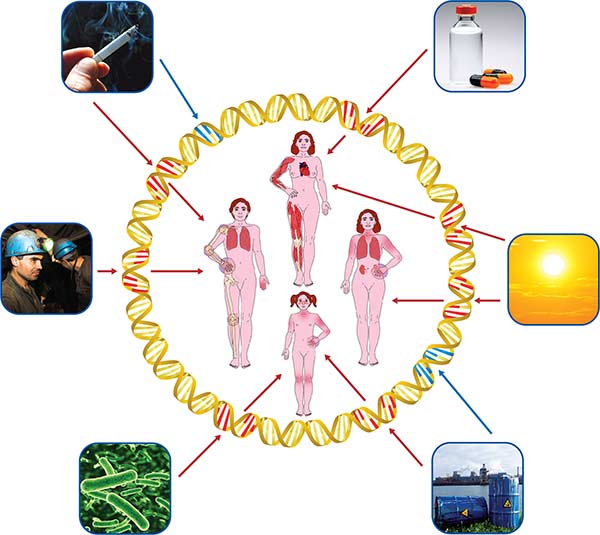Mechanisms of Autoimmune Diseases
-

-
Lisa G. Rider, M.D.
Head and Senior Clinician -
Tel 301-451-6272
[email protected] -
10 CENTER DRNIHBC 10 - CRC - HATFIELDBethesda, MD 20892-1301
Research Summary
Lisa G. Rider, M.D., is Head of the Environmental Autoimmunity Group and a Senior Clinician, specializing in pediatric rheumatology. The mission of the Environmental Autoimmunity Group is to understand the mechanisms for the development of autoimmune diseases so that group members can extend healthy life and reduce the burdens of illness and disability. The group conducts a broad program of clinical, translational, and basic investigations in the area of adult and pediatric autoimmune diseases. Dr. Rider leads several research studies and pediatric enrollments in the group.
The group uses multidisciplinary approaches to understand the roles of genetic and environmental risk factors for these diseases. Group members are currently focusing investigations on the Systemic Rheumatic Diseases. The diseases Dr. Rider is most involved with in the group’s research studies include the Idiopathic Inflammatory Myopathies (Dermatomyositis, Polymyositis, Inclusion Body Myositis, and related Myositis Syndromes). These illnesses are heterogeneous groups of disorders defined by chronic muscle inflammation and are prototypic autoimmune diseases.
The group supports studies at the NIH Clinical Center, which include epidemiologic surveys, molecular genetic studies, clinical investigations in disease pathogenesis, and the development of tools for the assessment of innovative therapies.

Major areas of research:
- Understanding Phenotypes, Genetic and Environmental Risk Factors for Pediatric Autoimmune Diseases, particularly Juvenile and Adult Myositis
- Understanding mechanisms for the development of autoimmune diseases, particularly Juvenile Myositis
- Developing new assessments and novel therapies for myositis
Current projects:
- Environmental Risk Factors for the Anti-Synthetase Syndrome – The purpose of this study in new onset patients is to determine what environmental risk factors may lead to the development of idiopathic inflammatory myopathies (IIM) overall and in particular what risk factors lead someone to develop one type of IIM over another. The study is enrolling patients with anti-synthetase syndrome and healthy control subjects.
- Pathogenic Studies in Families with Twins or Siblings Discordant for Systemic Rheumatic Disorders – A study of patients with polymyositis, dermatomyositis, systemic lupus erythematosus (SLE, Lupus), rheumatoid arthritis, and systemic sclerosis (Scleroderma) who have been diagnosed within 47 months and their healthy same sex twin or close-in-age sibling. The purpose of this study is to determine different environmental and genetic risk factors that may contribute to the development of autoimmune diseases.
- Calcinosis Study – This study is investigating the safety and efficacy of a medication, sodium thiosulfate, to treat patients with juvenile and adult dermatomyositis with moderate to severe calcinosis. Calcinosis, the development of calcium deposits in the muscle, skin and other tissues, can be painful and cause disabilities, and there are no known effective therapies.
- Adult and Juvenile Myositis – This study evaluates subjects with adult and childhood-onset myositis to learn more about their causes, the immune system changes and medical problems associated with them. This study is investigating the genetic and environmental risk factors involved in the development of myositis, and developing new tools and biomarkers to better assess these conditions to facilitate the evaluation of new therapies.
Rider oversees investigators and trainees in the group and leads national and international consortia that evaluate and conduct a wide range of basic and clinical studies on juvenile and adult myositis. She obtained her M.D. at the Duke University School of Medicine, completed her pediatrics training at Seattle Children’s Hospital of University of Washington, and her fellowship in pediatric rheumatology at Seattle Children’s Hospital, Seattle, WA, Children’s National Medical Center, and the National Institute of Arthritis and Musculoskeletal and Skin Diseases, National Institutes of Health, Bethesda, MD.
Rider has focused much of her work on autoimmune muscle diseases in children and has received several awards of distinction. She has authored or co-authored nearly 200 research publications, reviews, books, and book chapters. She also co-established and is co-chair of the International Myositis Assessment and Clinical Studies Group (IMACS) and the Childhood Myositis Heterogeneity Study Group. Rider is vice chair of the Myositis Genetics Consortium (MYOGEN), which is leading studies to define new genetic risk and protective factors for myositis.
Relevance to NIEHS Mission
Our work is helping to identify new genetic and environmental risk and protective factors for myositis and other autoimmune diseases, particularly in children and how these differ from adults. Our goal is to define a number of genetic and environmental risk factors for disease development and to understand the mechanisms involved in initiating illness. Identification of environmental risk factors for disease may lead to preventive strategies to modulate environmental factors to decrease the severity of illness or even prevent its onset.


